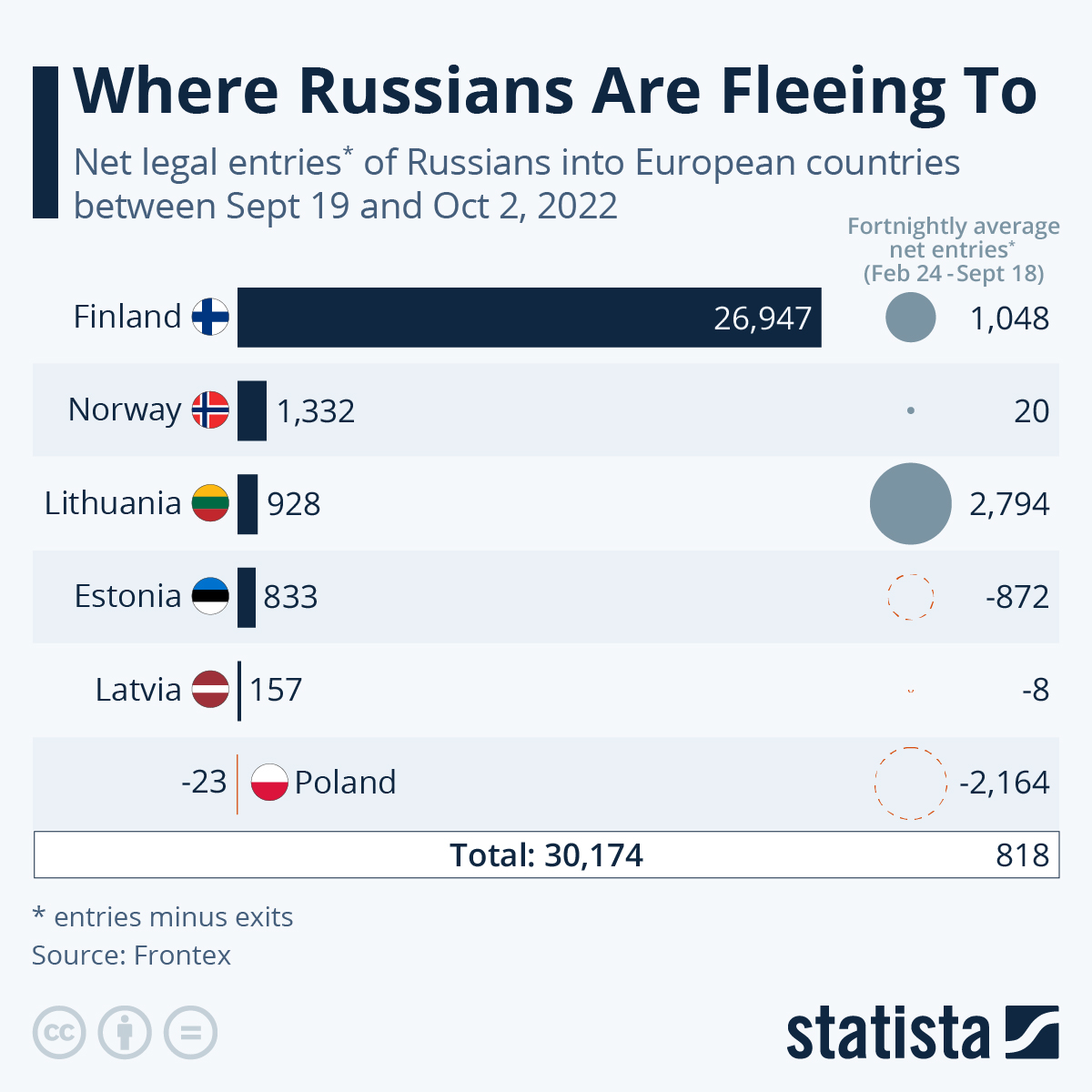The partial mobilization of the Russian population for the war the country is leading in Ukraine has sent many Russians – especially young men – packing. Lines formed at Russia’s land borders and flights were fully booked up as many of those subject to draft orders sought to flee the country in the past weeks.
Frontex data shows that around 30,000 more Russians entered neighboring European countries between September 19 and October 2 than left them, far surpassing the previous fortnightly average of around 800 Russian remaining since the start of the invasion. In the week of October 3-9, Russian migration to all European countries that share a land border with Russia once again turned negative as around 5,000 more Russians departed than entered.
Finland saw the biggest influx of Russians before eventually baring their entry on tourist visas after September 29. Other EU countries had closed their borders to Russian tourists even before the mobilization announcement, explaining the high numbers in Finland.
Nevertheless, around 800 and 900 Russian arrivals each remained in Estonia and Lithuania between September 19 and October 2, the brunt of them entering more recently as restrictions likely made their journeys more complicated. Norway, which isn’t an EU member, has continued to welcome Russian tourists, and received +1,300 Russians over the aforementioned period, surpassing the previous fortnightly average of 20 by a large margin. Norway was the only neighbor with a positive migration balance of Russians last week despite its border being an 18-hour drive from St. Petersburg.
Before restrictions were introduced, Lithuania had been the country receiving the most Russians on average - a fact that the new procedures could cushion somewhat. Estonia and Latvia, on the other hand, had seen more Russians return home before September 19 than entered the country. That trend was reversed following the mobilization. Poland remained a country that more Russians were departing from throughout the year, but entries and exits almost broke even in the weeks following the mobilization.





















